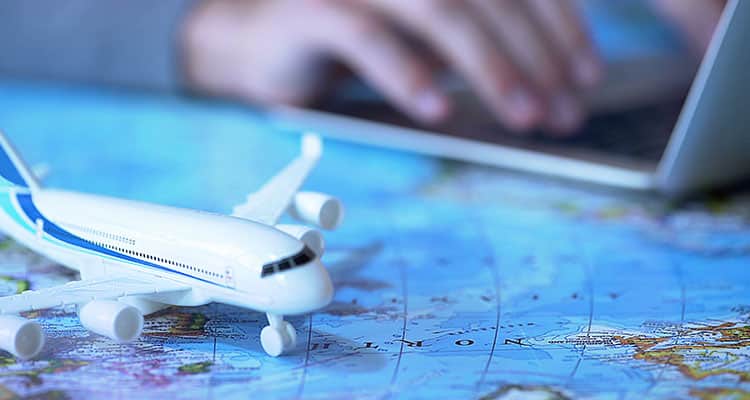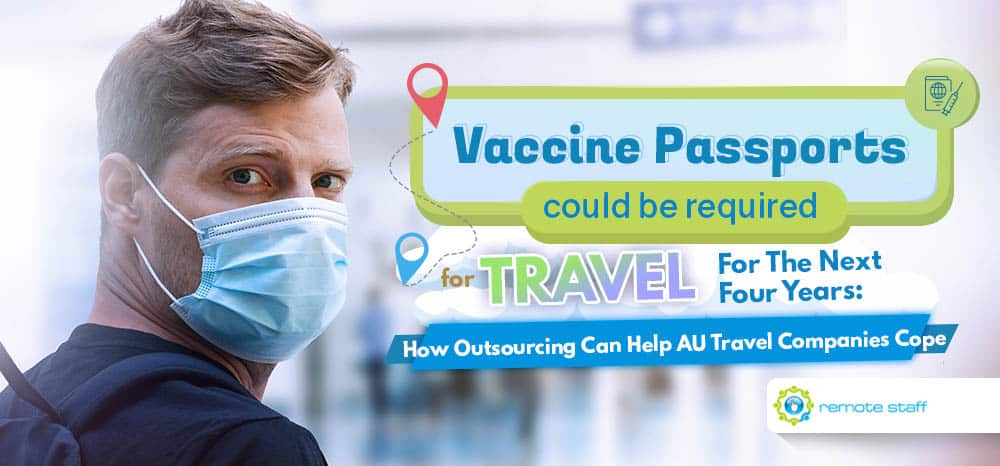As an introvert, it wasn’t so difficult for me to adjust to life in quarantine.
If there is one thing I miss about life pre-lockdown, however, it’s travel.
Don’t get me wrong. I’m very thankful for still having a job, a roof over my head, and the ability to afford basic necessities and even quite a few comforts. I know that a lot of people aren’t so lucky.
But you see, travel was my way of rewarding myself for long hours of hard work. I’d save up for a year or two, and then take off to one of my favourite places abroad for a week. It always did wonders for my health and overall well-being, and I’d come back to work with a fresh perspective.
Alas, it’s not exactly possible to do that now, and I haven’t set foot outside my little patch of the world in over a year. So, naturally, I wonder about what the #NewNormal for traveling would look like in the future.
Apparently, I’m not the only one. Let’s take a look at what the experts have to say.
Will We Need Proof of Vaccination to Travel?

Likely, yes. Or at least, for the next three to four years.
According to the head of knowledge management and innovation for Turismo de Portugal Sérgio Guerreiro, the travel industry is facing some unique challenges in the years ahead.
“I think we will move to a more polarised model, there will be a certain volume of tourists that will demand less crowded, unknown, clean places,” Guerreiro said.
However, there could also be some new opportunities on the rise. Once the vaccination programs take effect, people will certainly be raring to indulge their wanderlust. “A lot of innovation will be needed….when COVID-19 is past, people will travel like crazy but… the best experience destinations will be the first to recover.”
Only if the travel industry survives this, though. Last year was understandably the worst in the history of international travel. (No) thanks to the pandemic, the global travel industry lost an estimated USD1.3 trillion in export revenue.
Furthermore, experts believe that it could take at least another two years before the industry’s figures approach 2019 levels again.
How Can The Travel Industry Cope?

Prior to 2020, Australia’s travel industry consistently drove economic growth. It wasn’t just the international sector too. Many Australians sought to see more of their country over the past two years.
Of course, that all changed last year. The covid-19 pandemic made it all but impossible to leave the house (except for grocery runs and emergencies), let alone the country or state. At least during lockdown periods.
These days, some areas have eased their restrictions a bit. But while it’s currently possible to travel to some local destinations, industry players have their work cut out for them.
First, they need to hunker down and digitise. Online bookings are key to maintaining social distancing, not to mention aiding state contact-tracing efforts. Both tourists and regulating bodies will demand as much proof that destinations are covid-free.
Second, travel companies will have to be more creative about the experiences they offer. Future travelers will be a lot more discerning about what the locations they would want to visit, especially given the amount of effort they’ll have to expend to travel safely.
Third, social media and e-commerce will play an even bigger role in helping travel companies adapt. With people spending more time on their phones and in front of computer screens, the right sort of digital marketing is the best way forward.
Where Does Outsourcing Come In?

What’s the common factor among all the incoming travel industry trends? A lot of the work involved can be done remotely…and outsourced.
Because let’s be honest. Given last year’s monumental losses, who can afford to hire locally for the long term?
But the show must go on, so to speak. Outsourcing still emerges as the best solution.
There’s the substantial amount of cost savings, for one. Why hire one local digital marketer when you can hire an entire digital marketing team, say, in the Philippines, for the same price? Better still, you can even hire that team on a project-based basis if you don’t foresee a long-term need for their services.
Then there’s the sheer amount of digital talent abroad. Outsourcing gives you instant access to highly-trained and experienced social media managers, virtual assistants, website developers, and back-office admins. You wouldn’t need to train any of them from scratch and your business can leverage on their skills almost instantly.
As with all the other industries, it’s a matter of adapting to survive. The firms that can’t or won’t do that aren’t likely to make it past the pandemic.
Outsourcing is just one of many ways to adapt, and Remote Staff is more than ready to help you make the transition. With more than ten years of experience in assisting AU entrepreneurs from various industries (yes, including travel) find the top Filipino remote talent for their needs, we can help you make the most out of your remote team.
Click here to give us a call or here to schedule a callback with us today.
Serena has been working remotely and writing content for the better part of the last decade. To date, she's written for Pepper.ph and Mabuhay Magazine, among others, and has churned out more than a thousand articles on everything from The Basics of Stock Market Investing to How to Make Milk Tea-Flavored Taho at home. Hermits, aspiring hermits, and non-hermits with interesting project propositions may email her at serena.estrella10@gmail.com.
























 Zero Recruitment Fee
Zero Recruitment Fee